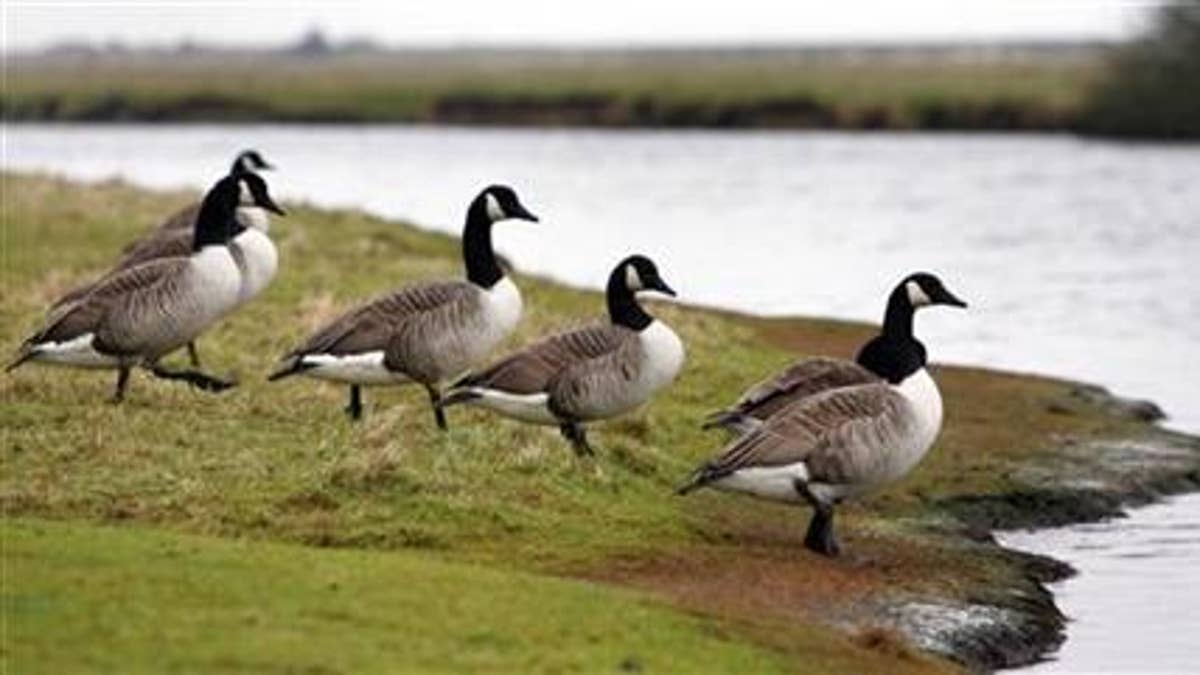
Canada geese walk towards the water at Cuckmere Haven in southern England. (Reuters/Luke MacGregor)
Animals and plants introduced from foreign habitats may not reveal themselves to be harmful 'invasive' species for decades, according to a European study published on Monday.
Species that are moved away from their natural predators back home can displace native species in their new habitats, and scientists say the problem already costs Europe 12 billion euros ($16 billion) a year.
The study, which is likely to hold true for other continents too, means that the seeds of future, perhaps bigger, problems have literally already been sown.
The study compared the effects of "alien species" such as American ragweed, Canada geese or Japanese deer in 28 European countries.
The study's findings indicated that it can take decades to figure out which alien species will be disruptive, and looking at those that arrived in 1900 was a better indicator of current problems than looking at those from 2000.
"This lag in the cause-and-effect relationship would mean that ... the seeds of future invasion problems have already been sown," said the study, published in the U.S. Proceedings of the National Academy of Sciences.
Birds and insects were quickest to get established in new habitats, helped by their mobility. Others took far longer to reach the critical numbers to become invasive.
Introductions to Europe from the 19th century included ragweed, whose pollen is blamed for some hay fever, and the black locust tree, also from North America, which can damage European grassland with its ability to store nitrogen.
Increasing trade and travel during the 20th and 21st centuries means that the problems are likely to worsen unless checks on everything from the ballast tanks of ships to coffee or grain imports are tightened.
"We should do more about this problem now," said Stefan Dullinger, of the University of Vienna, Austria, who was among authors of the study from institutes in New Zealand, the Czech Republic,Germany, Switzerland, Spain, Italy and France.
"Otherwise, things can become even much worse than they are in a few decades," he said. The findings for Europe were likely to be mirrored elsewhere in the world.
The study also recommended that Europe should target controls at animal and plant species that were so far causing no damage but were known to be invasive in other habitats.
Climate change could also add to the spread. "Warmer temperatures could trigger the spread of invasive species that are limited by climate now," Dullinger said.








































